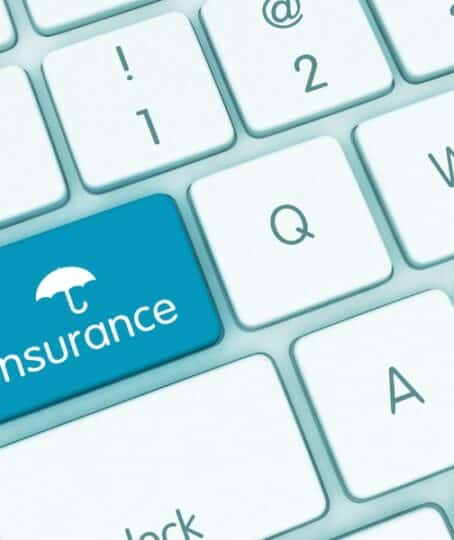
What to Do If You’re Injured in a Car Accident While Working in Illinois Work-related car accidents are common. Between...


When it comes time to file a claim, it helps to be aware of the car insurance claim process for car accidents in Bloomington. If you have been in a car accident, you have probably suffered damages either from medical bills for getting treatment from injuries from the crash, or repairs to your vehicle. Illinois requires all drivers to carry insurance for this reason. If you have been in an accident, insurance should compensate you for your damages.
While every insurance company handles claims a bit differently, there are three main steps. These are gathering relevant documentation and information, contacting your insurance company to make a claim, and receiving a decision from your insurance regarding compensation.

In a car accident, an insurance claim is a request for compensation from an insurance company to cover the cost of your injuries or repairs to your property. There are different types of insurance coverage, aimed at different circumstances. You can only file an insurance claim if there is coverage for your circumstances.
All insurance policies will fall into the categories of either first-party or third-party coverage. A first-party claim is one that you make with your own insurance. If your policy covers what you are claiming for, your insurance will pay you compensation for your claim. First-party insurance covers damages or losses for the policyholder.
A third-party claim is one that is made with someone else’s insurance company. These claims are made in instances where your actions have led to another person suffering damages, so you are liable for that person’s damages. In this instance, if you have the correct coverage, your insurance company will pay the person who has a claim against you. It is a policy in which you, the first party, are insured by your insurance company, the second party, for protection against claims made by another person, the third party. The third party is not directly part of the insurance contract.
Liability coverage is the same as third-party insurance. It covers you for damages that you cause another person because of an accident in which you are at fault. You would be liable for these damages, and your insurance will cover these damages. Liability coverage has two types – bodily injury covering physical harm and injuries, and property damage for damage to vehicles.
Personal injury protection covers medical expenses, as well as lost wages for you or passengers who have been injured in an accident, regardless of who is at fault. It is a form of first-party insurance.
Comprehensive insurance covers you for damage to your vehicle from events outside your control. These can include natural disasters, fires, floods, theft, falling objects, or vandalism. Collision insurance covers damage from any form of collision, whether it be hitting an object such as a tree, or another vehicle. Collision coverage is a form of first-party coverage, and it will cover you regardless of who is at fault.
In some events, you may be in an accident caused by another driver, who is then liable to compensate you for your damages. Usually, in this case, you would make a third-party claim against his or her insurance company. However, sometimes the other driver does not have insurance coverage. In this instance, you are not able to make a third-party claim and would have to file a lawsuit to claim compensation against the other driver. Uninsured motorist insurance covers you in such a case. You can make a first-party claim with your own insurance company.
Underinsured coverage works the same as uninsured motorist coverage, except that the at-fault driver has insurance coverage, but its limits are too low to fully cover your damages.
This includes all the coverages listed above, and covers you for every circumstance.
Illinois law requires all drivers to have liability insurance, as well as uninsured and underinsured motorist coverage. The minimum limits drivers are required to have for liability insurance are $25,000 bodily injury per person injured in an accident, $50,000 bodily injury per accident, and $20,000 property damage per accident. The minimum limits for uninsured and underinsured motorist coverage are $25,000 for bodily injury per person, and $50,000 for bodily injury per accident.
The start of the insurance claim process for car accidents in Bloomington begins right after an accident.
You should know what to do after a car accident. Knowing what to do can make a difference in filing a successful claim:
Call law enforcement. Police officers will attend the scene of the accident and prepare a traffic crash report. This contains information about the crash, including date, time, and location of the crash and details of witnesses, drivers, and owners of the cars involved. It also states whether anyone was injured, and if victims were transported to hospital. Importantly, for insurance purposes, the report states the cause of the crash, citations, or arrests made, a narrative of the accident, and notes of traffic signals, intersections, and skid marks.
You should also get names and contact information of other drivers, passengers, and witnesses, as the insurance company may want to conduct interviews. It’s also important to get insurance policy details of the other driver.
If you’re able, document the scene yourself by taking photographs, and write down a summary of what happened. Include information of damaged vehicles, events leading up to, during and after the crash, and any other relevant information.
Notify your insurance company immediately to avoid timely filing issues. You should also keep receipts and bills for any medical treatment that you have received, repairs to your vehicle, and any expenses that you have had to pay because of the accident.
You can either file a first-party claim with your own insurer or file a third-party claim with the other driver's insurer. This will depend on the circumstances and your policy.
You will make a first-party claim if you were at-fault for the accident or the other driver is uninsured or underinsured. You will also make a first-party claim if you are claiming under your own policy for personal injuries and medical payments, or are making a claim under your own policy for collision coverage.
If the other driver was at fault and caused the accident, you may file a third-party claim with that driver's insurer. Third-party claims tend to take longer, and there will be a more comprehensive investigation because the insurance company will have to determine who was at-fault in the accident.
You should file a claim as soon as possible. Delaying this could lead to negative consequences for your claim, and even having it denied, since the insurance will not be able to investigate properly.
When reporting a claim, you will likely be required to provide the company with certain information. This includes what vehicles and drivers were involved in the accident, a basic description, as well as location and time, insurance information of the other driver, and information of witnesses. The insurance company will also likely request the police report number.
After you have filed a claim, the insurance company will assign a claims adjuster to your case. The claims adjuster will likely contact you to ask for extra information. You should work closely with your claims adjuster as this will speed up the investigation. The duties of an adjuster are to:
Once the claims adjuster has compiled the report, he or she will make you an offer. You can accept the offer or negotiate to try to get a better offer. Prepare for this negotiation by keeping evidence to support your claim, such as medical records, invoices, receipts, and any other documentation. The better your evidence, the stronger your negotiating position will be.
If you and the claims adjuster can agree on an amount, he or she will authorize a final payment. You will sign a release accepting the offer and will then receive your payment.
The three biggest factors that impact a car accident claims process in Bloomington are issues regarding fault, the severity of injuries and damages, and how soon the accident is reported.
In Illinois, the at-fault driver’s insurance company is responsible for making compensation for damages. Sometimes, fault is shared between both drivers, in which case the investigation must establish which driver was most at-fault, and what the percentage fault was. If you were partly at fault, your damages are reduced by a percentage equal to your fault. This slows the car insurance claim process down significantly, as it becomes more complicated and potentially more contentious.
You can claim compensation for medical care to treat your injuries. You can also claim mental and physical pain and suffering for your injuries, and other lost income and financial losses that are traceable to the accident. With more complicated damages, determining them becomes a more complex process.
How long you take to make a claim is also very important. Insurance companies often have deadlines within which you must file a claim. If you delay, it could also significantly and negatively affect the investigation. For example, it may be more difficult to track down witnesses. Delaying could lead to negative consequences, and possibly even a denial of your claim.
If your claim is straightforward, you can probably get fair compensation without a lawyer by following the correct procedure. There are certain cases where it may be essential to get a lawyer after an auto accident:
In deciding whether you require a Bloomington car accident lawyer to assist, you need to consider the time that you will have to invest in learning and following the car insurance claim process, and how confident you are in gathering evidence. You should also consider how confident you are in navigating the insurance claim process for car accidents and negotiating with an adjuster. You will also need to decide at what point your claim becomes too serious for you to handle on your own.

What to Do If You’re Injured in a Car Accident While Working in Illinois Work-related car accidents are common. Between...

Why Pedestrian Accidents in Parking Lots Surge During Summer in Illinois As temperatures rise, more individuals tend to engage in...

Drowsy drivers are a serious and often overlooked danger on Illinois roads. Each year, fatigued drivers contribute to thousands of...